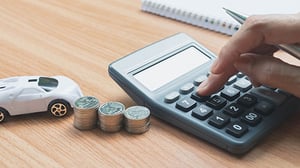 Emergencies happen to everyone, regardless of whether you have a steady income or are struggling to manage your finances. Unexpected expenses can throw your life into turmoil — and if you don’t have the money to resolve the crisis, your life will become even more difficult. That’s why you need an emergency fund.
Emergencies happen to everyone, regardless of whether you have a steady income or are struggling to manage your finances. Unexpected expenses can throw your life into turmoil — and if you don’t have the money to resolve the crisis, your life will become even more difficult. That’s why you need an emergency fund.
What is an emergency fund?
As the financial experts at Vanguard say, “An emergency fund is a stash of money set aside to cover the financial surprises life throws your way.” If something unexpected happens that severely impacts your income or expenses, your emergency fund can give you the support to make it through the dilemma.
These crises can range from a job loss to medical need to car or house problems. If you get laid off from your job, you will have enough money to get by while you search for your next employment opportunity. If your car breaks down, you can afford to pay for repairs or buy a new one. And if a major appliance stops working and isn’t covered under your home warranty, you can replace it.
Why have an emergency fund?
Setting aside money specifically for emergency situations gives you the peace of mind that you can handle unexpected setbacks. Dana Anspach of The Balance explains that having a stash of money you can draw from in emergencies protects your other long-term investments. You can reduce the long-term financial impact of an emergency this way, so you’re not withdrawing from your retirement fund, selling stocks or taking out loans.
How much should I keep in my emergency fund?
How much money should be in your emergency reserve varies based on your family’s living expenses. You need to do the math to calculate your recurring expenses and determine how much your target amount should be.
Anspach says that “At a minimum, you should have three months of living expenses in your emergency fund.” However, if you have familial dependents who don’t have their own source of income — like children or a stay-at-home spouse — that fund should cover six months of living expenses. So, what you should have saved away could range from $3,000-$30,000 — it’s all based on what you’d need.
Track all your expenditures for a month, determine which are essential and calculate how much you spend on them. Typical living expenses involve mortgage payments, utilities, car payments, gas, any insurance costs, cell phone bills, groceries, prescription drugs, vet visits and major memberships you wouldn’t want to cancel should an emergency arise. You should take age, career field and available government assistance into consideration when determining how much money should be in your extra savings.
Where do I get the money for my emergency fund?
An emergency fund isn’t something you populate through a single paycheck. It takes time to grow your emergency fund so you can still manage your everyday bills. According to CEO of Coastal Wealth Jeremy Straub in an interview with CNBC, you should set aside 5-10 percent of every paycheck for building your emergency fund until you reach at least three months’ amount.
Even if you don’t think you can spare the money every month, it’s in your best interest to funnel some of your paycheck into emergency savings. Find ways to trim your monthly expenses so you can put enough money aside every time you’re paid.
Where should I keep my emergency fund?
An emergency fund won’t do you any good if it’s locked up somewhere you can’t easily access it when you need it most. That’s why best-selling author and Dave Ramsey contributor Rachel Cruze stresses the importance of having your emergency fund be liquid. She recommends keeping it in a checking or money market account that has debit or check-writing privileges. Just make sure you keep it separate from your other everyday money accounts so you’re not tempted to dip into your emergency fund for unnecessary reasons.
Whatever your income is and how well-off you may feel, everyone needs an emergency fund for when things go awry.
To explore how much your emergency fund should be, check out our calculator: https://www.ffbf.com/calculator/emergency